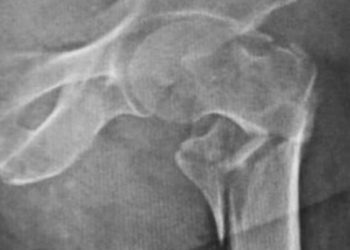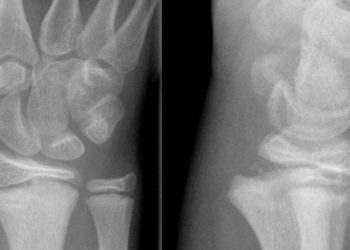Multicomponent nonpharmacological delirium intervention reduced delirium, falls
1. This meta-analysis of studies that sought to determine the effectiveness of multicomponent nonpharmacological delirium intervention in hospitalized older adults showed that there was a 50% reduction in the incidence of delirium amongst patients who underwent the interventions.
2. Additionally, patients in the intervention group also suffered significantly fewer falls compared to those patients who did not receive any intervention.
Evidence Rating Level: 1 (Excellent)
Study Rundown: Delirium, which is a state of confusion and cognitive dysfunction, leads to significant morbidity amongst hospitalized elderly patients and significantly increases the cost of health care. However, this is a preventable condition in greater than one-third of cases. One of the original studies performed in this realm was the Hospital Elder Life Program (HELP), which developed targeted strategies to prevent and minimize delirium. Modifications of this are widely used today. This meta-analysis was conducted to determine the body of evidence present regarding multicomponent nonpharmacological delirium interventions and their effectiveness. The results of the study showed that there was a 50% reduction in the incidence of delirium amongst older hospitalized patients who received the interventions. Additionally, patients in the intervention group also suffered significantly fewer falls compared to those patients who did not receive any intervention.
The strength of the study was the relatively strict inclusion criteria employed for the studies, namely that they had precise outcomes measures outlined and they all used validated delirium prevention and identification protocols. However, the studies were heterogeneous in terms of the design, which reduced the validity of the findings. Additionally, many of the secondary outcomes varied across the different studies, so it is difficult to comment on the effectiveness of the intervention for those outcomes.
Click to read the study, published today in JAMA Internal Medicine
Click to read an accompanying commentary in JAMA Internal Medicine
Relevant Reading: Delirium in hospitalized patients: implications of current evidence on clinical practice and future avenues for research–a systematic evidence review
In-Depth [ systematic review and meta-analysis]: The studies included in this meta-analysis were derived from a literature review that spanned 1999-2013. Inclusion criteria for the individual studies were that they had to be original articles and the patients included were age 65 years or older. Exclusion criteria included lack of outcome measures, qualitative studies, or non-primary research articles. The primary outcomes included incidence of delirium (defined based on validated methods, which included the Confusion Assessment Method and Delirium Observation Screening Scale), and patient falls. Secondary outcomes included length of stay, rate of discharge to long-term care facilities, and change in functional or cognitive status.
In the final analysis, 14 studies that took place in various countries were included, six of which were prospective randomized trials, while 8 were prospective non-randomized trials. In the final analysis, the odds of delirium incidence was 53% lower in the intervention group (OR 0.47; 95%CI 0.38-0.58). The number needed to treat was 14.3 (95%CI 11.1-20.0). Odds of falling in the intervention group were 62% lower (OR 0.38; 95%CI 0.25-0.60). The length of stay, rate of institutionalization, and changes in functional and cognitive status did not reach statistical significance between the intervention and the control group, but they all had a trend towards improvement in the intervention group.
More from this author: Noninvasive testing for chest pain may lead to increased invasive testing, Increased salt intake not associated with higher mortality in older adults, Withholding and withdrawing care viewed as different among Asian intensivists, Whole grain consumption associated with decreased all-cause, cardiovascular mortality, Cardiac mortality paradoxically lower during times of national cardiology conferences
Image: PD
©2015 2 Minute Medicine, Inc. All rights reserved. No works may be reproduced without expressed written consent from 2 Minute Medicine, Inc. No article should be construed as medical advice and is not intended as such by the authors, editors, staff or by 2 Minute Medicine, Inc.






